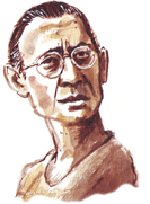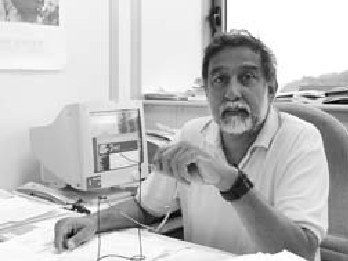Adil Najam
 The debate over the US $7.5 billion (over five years) Kerry-Lugar Bill – The Enhanced Partnership with Pakistan Act – passed by the U.S. Senate late September seems to have have generated great confusion, bemusement, anger and frustration. Sometimes, all at the same time.
The debate over the US $7.5 billion (over five years) Kerry-Lugar Bill – The Enhanced Partnership with Pakistan Act – passed by the U.S. Senate late September seems to have have generated great confusion, bemusement, anger and frustration. Sometimes, all at the same time.
The headlines in only today’s The News tell us, for example, that the Pakistan Army considers the Bill to be an “insult,” that Pakistan’s Prime Minister sees it as a “big success for democracy,” that India is “upset” about it, and that U.S. Secretary of State Hillary Clinton is chiding the Bill’s critics to “read the Bill first.” Even as the entrepreneurial classes in both Washington and Islamabad dream up big plans and salivate at impending windfalls, it is difficult to tell whether it is the political pundits in Washington who feel more insulted or the political pundits in Islamabad. Suffice to say, both are seething with anger, even when it is not at all clear why.
Read Full Post
Aziz Akhmad
 This is the second part of my rendition of Saadat Hasan Manto’s description of his own trial, as presented in Zehmat-i-Mehr-i-Darakhshan. This is not a literal translation are readers are highly encouraged to read the original.
This is the second part of my rendition of Saadat Hasan Manto’s description of his own trial, as presented in Zehmat-i-Mehr-i-Darakhshan. This is not a literal translation are readers are highly encouraged to read the original.
The first part of this was posted last week (here). We pick it up from where we left off then. You may want to go back just to refresh yourself of where the story was at the end of Part-1.
Zehmat-i-Mehr-i-Darakhshan (continued…)
On the next hearing, Mr. Tassadaq Hussain Khalid, my lawyer, could not attend because of some family exigencies. We got a new date, but Mr. Khalid could not make it to that hearing either. I requested the magistrate for another postponement but he refused and ordered the proceedings to begin. I was helpless.
Read Full Post
Pervez Hoodbhoy
 It was mid-October 1973 when, after a gruelling 26-hour train ride from Karachi, I reached the physics department of Islamabad University (or Quaid-e-Azam University, as it is now known). As I dumped my luggage and “hold-all” in front of the chairman’s office, a tall, handsome man with twinkling eyes looked at me curiously. He was wearing a bright orange Che Guevara t-shirt and shocking green pants. His long beard, though shorter than mine, was just as unruly and unkempt. We struck up a conversation.
It was mid-October 1973 when, after a gruelling 26-hour train ride from Karachi, I reached the physics department of Islamabad University (or Quaid-e-Azam University, as it is now known). As I dumped my luggage and “hold-all” in front of the chairman’s office, a tall, handsome man with twinkling eyes looked at me curiously. He was wearing a bright orange Che Guevara t-shirt and shocking green pants. His long beard, though shorter than mine, was just as unruly and unkempt. We struck up a conversation.
At 23, I had just graduated from MIT and was to be a lecturer in the department; he had already been teaching as associate professor for five years. The conversation turned out to be the beginning of a lifelong friendship. Together with Abdul Hameed Nayyar – also bearded at the time – we became known as the Sufis of Physics. Thirty six years later, when Faheem Hussain lost his battle against prostate cancer, our sadness was beyond measure.
Revolutionary, humanist, and scientist, Faheem Hussain embodied the political and social ferment of the late 1960s.
Read Full Post
 The debate over the US $7.5 billion (over five years) Kerry-Lugar Bill – The Enhanced Partnership with Pakistan Act – passed by the U.S. Senate late September seems to have have generated great confusion, bemusement, anger and frustration. Sometimes, all at the same time.
The debate over the US $7.5 billion (over five years) Kerry-Lugar Bill – The Enhanced Partnership with Pakistan Act – passed by the U.S. Senate late September seems to have have generated great confusion, bemusement, anger and frustration. Sometimes, all at the same time.

 It was mid-October 1973 when, after a gruelling 26-hour train ride from Karachi, I reached the physics department of Islamabad University (or Quaid-e-Azam University, as it is now known). As I dumped my luggage and “hold-all” in front of the chairman’s office, a tall, handsome man with twinkling eyes looked at me curiously. He was wearing a bright orange Che Guevara t-shirt and shocking green pants. His long beard, though shorter than mine, was just as unruly and unkempt. We struck up a conversation.
It was mid-October 1973 when, after a gruelling 26-hour train ride from Karachi, I reached the physics department of Islamabad University (or Quaid-e-Azam University, as it is now known). As I dumped my luggage and “hold-all” in front of the chairman’s office, a tall, handsome man with twinkling eyes looked at me curiously. He was wearing a bright orange Che Guevara t-shirt and shocking green pants. His long beard, though shorter than mine, was just as unruly and unkempt. We struck up a conversation.






















































